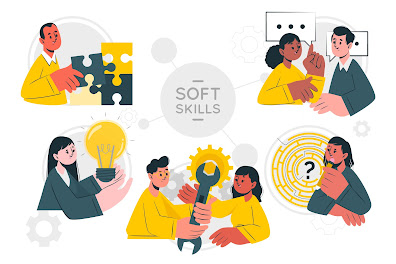Level 3 Certificate in Assessing Vocational Achievement: A Comprehensive Overview
What is the Level 3 CAVA?
The L3 CAVA is a nationally recognized qualification that validates an individual's ability to assess learners effectively.
Core Competencies Developed Through CAVA
The CAVA curriculum is structured to develop a comprehensive range of assessment abilities. These include:
- Understanding Assessment Principles: Learners grasp the fundamental principles of assessment, including its purpose, types, and methods.
- Planning Assessment: This involves designing assessment plans that align with learning outcomes and meet quality standards.
- Conducting Assessments: Learners acquire proficiency in various assessment techniques such as observation, questioning, and evidence gathering.
- Assessing Learners: The ability to make accurate judgments about learners' competence based on gathered evidence is a core focus.
- Providing Feedback: Effective communication of assessment results and constructive feedback is emphasized.
- Internal Quality Assurance: Learners understand the importance of maintaining assessment quality and contribute to internal quality assurance processes.
Career Opportunities with CAVA
Possessing a CAVA opens doors to a variety of roles within the education and training sector.
- Assessors: Employed by training providers or apprenticeship programs to evaluate learners' competence.
- Internal Verifiers: Responsible for ensuring assessment consistency and quality within organizations.
- Trainer-Assessors: Combining teaching and assessment roles to provide comprehensive learner support.
- Quality Assurance Officers: Overseeing assessment processes to maintain high standards.
- Learning and Development Professionals: Contributing to the design and delivery of effective learning programs.
Benefits of Obtaining a CAVA
Pursuing a CAVA offers several advantages:
- Enhanced Career Prospects: The qualification significantly improves employment opportunities in the assessment and training field.
- Skill Development: Learners acquire valuable skills in planning, conducting, and evaluating assessments.
- Contribution to Learner Success: CAVA holders play a vital role in supporting learners to achieve their goals.
- Professional Recognition: The qualification is widely recognized as a benchmark of competence in assessment.
Who Should Consider the CAVA?
The CAVA is suitable for individuals who:
- Have a passion for education and training.
- Possess strong interpersonal and communication skills.
- Enjoy working with people and supporting their learning journeys.
- Aspires to a career in assessment, vocational education, or human resources.
How to Obtain a CAVA
The CAVA is typically offered by approved training providers. The qualification involves a combination of theoretical learning and practical assessment.
Frequently Asked Questions (FAQs)
-
Is there a specific entry requirement for the CAVA?
- Generally, no formal qualifications are required, but some providers may have specific entry criteria.
-
Can I work as an assessor without a CAVA?
- While it is possible, possessing a CAVA significantly enhances your credibility and job prospects.
-
What is the difference between an assessor and a verifier?
- Assessors evaluate learners' competence, while verifiers ensure the quality and consistency of assessment practices.
-
Can I specialize in a particular vocational area after completing the CAVA?
- Yes, many assessors specialize in specific industries or occupational areas.
Conclusion
The Level 3 Certificate in Assessing Vocational Achievement is a valuable qualification for individuals seeking a career in assessment and vocational education. It provides a strong foundation in assessment principles and practices, enabling graduates to contribute effectively to learner success. By developing the skills to plan, conduct, and evaluate assessments, CAVA holders become essential assets to organizations striving for excellence in training and development.
Would you like to know more about specific training providers or career paths in this field?

.jpg)


Comments
Post a Comment